It is not enough to have a good mind; the main thing is to use it well
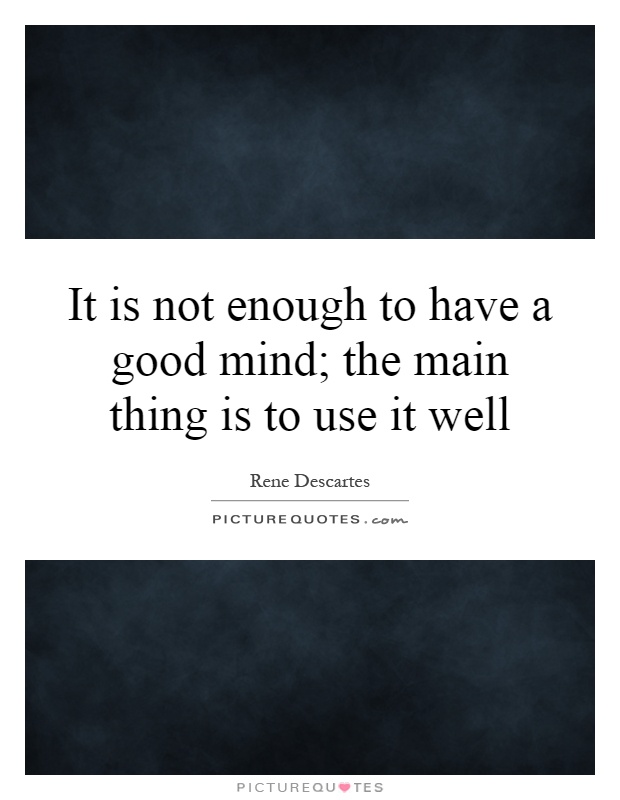
It is not enough to have a good mind; the main thing is to use it well
René Descartes, a French philosopher, mathematician, and scientist, is often credited with the famous quote, "It is not enough to have a good mind; the main thing is to use it well." This statement encapsulates Descartes' belief in the importance of critical thinking and rationality in the pursuit of knowledge and understanding.Descartes is best known for his method of doubt, in which he sought to systematically doubt everything he had been taught in order to arrive at certain knowledge. This method led him to his famous conclusion, "Cogito, ergo sum" or "I think, therefore I am," which laid the foundation for his philosophy of rationalism. Descartes believed that reason and logic were the keys to unlocking the mysteries of the universe and that it was essential to use one's mind well in order to arrive at truth.
Descartes' emphasis on the importance of using one's mind well can be seen in his approach to philosophy and science. He believed that it was not enough to simply possess intelligence or knowledge; one must also be able to apply that intelligence in a meaningful way. Descartes was a proponent of the scientific method, which emphasizes the importance of observation, experimentation, and logical reasoning in the pursuit of knowledge. He believed that it was not enough to simply accept received wisdom or rely on intuition; one must also be willing to question assumptions, test hypotheses, and follow the evidence wherever it leads.
Descartes' commitment to using one's mind well can also be seen in his ethical philosophy. He believed that it was important to cultivate virtues such as honesty, integrity, and intellectual humility in order to use one's mind in a responsible and ethical manner. Descartes believed that the pursuit of knowledge should be guided by a commitment to truth and a willingness to engage in open and honest dialogue with others.
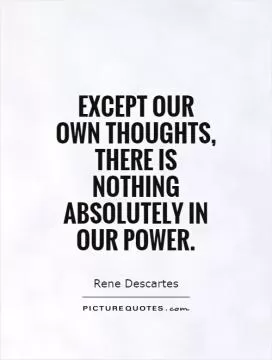
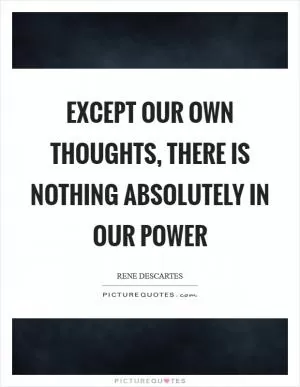


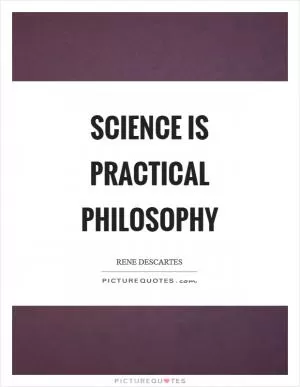




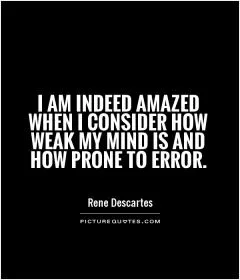
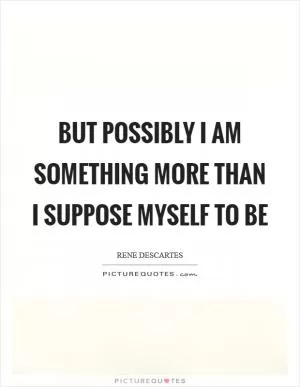
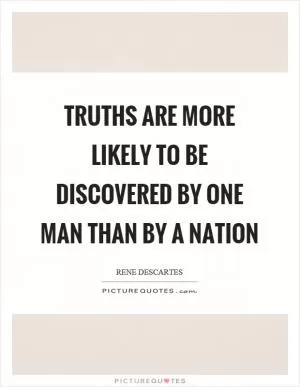
 Friendship Quotes
Friendship Quotes Love Quotes
Love Quotes Life Quotes
Life Quotes Funny Quotes
Funny Quotes Motivational Quotes
Motivational Quotes Inspirational Quotes
Inspirational Quotes